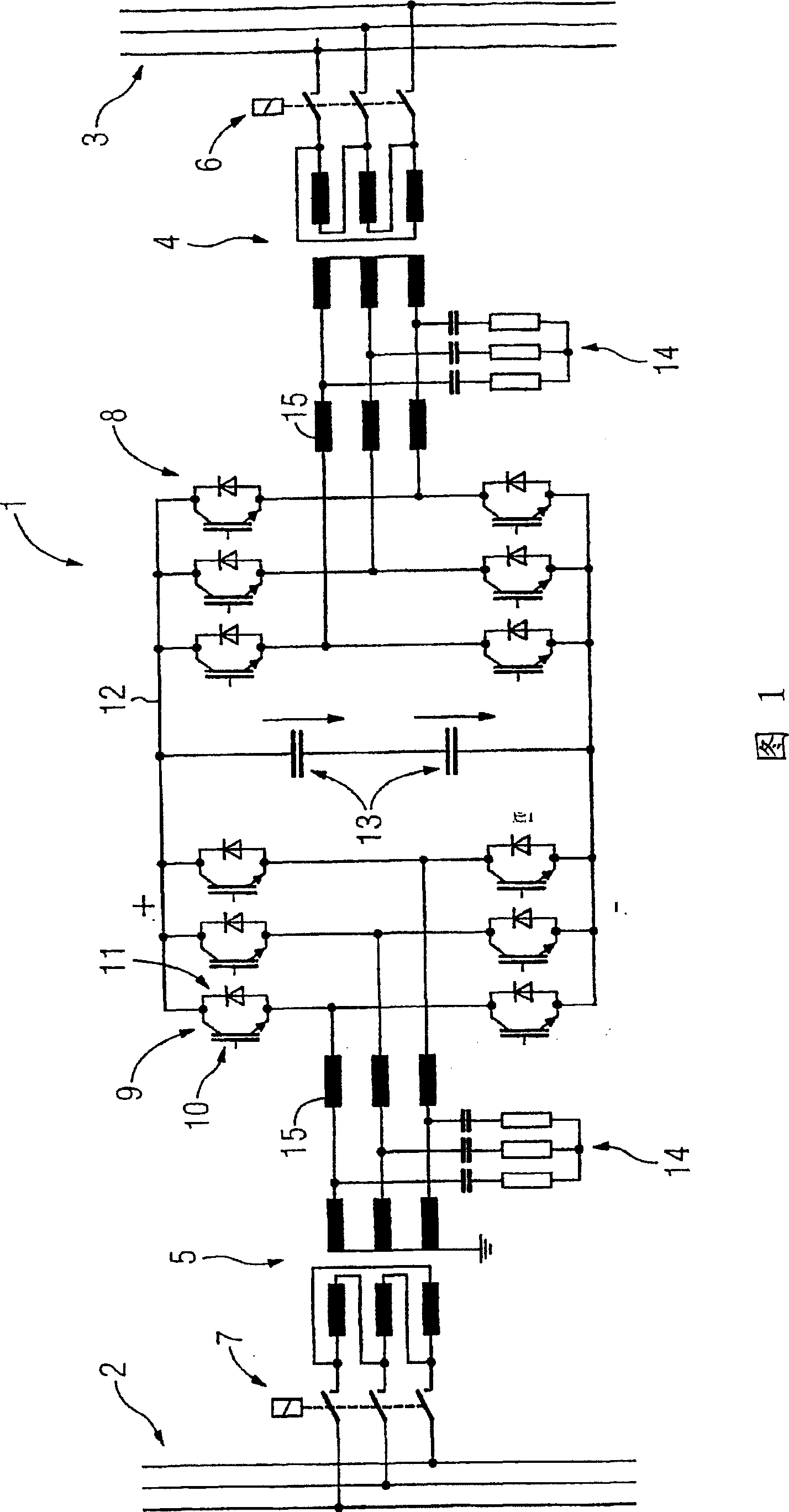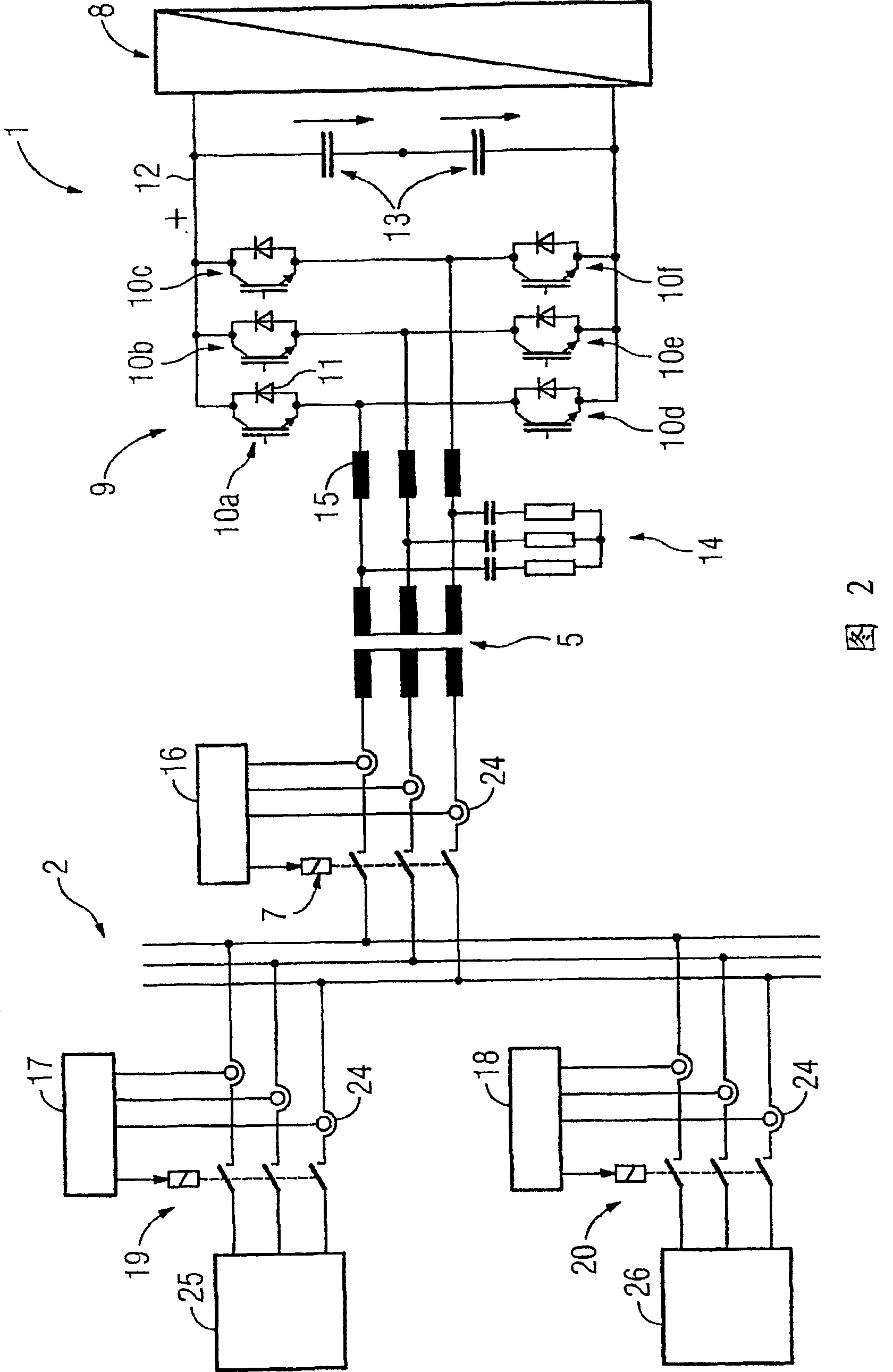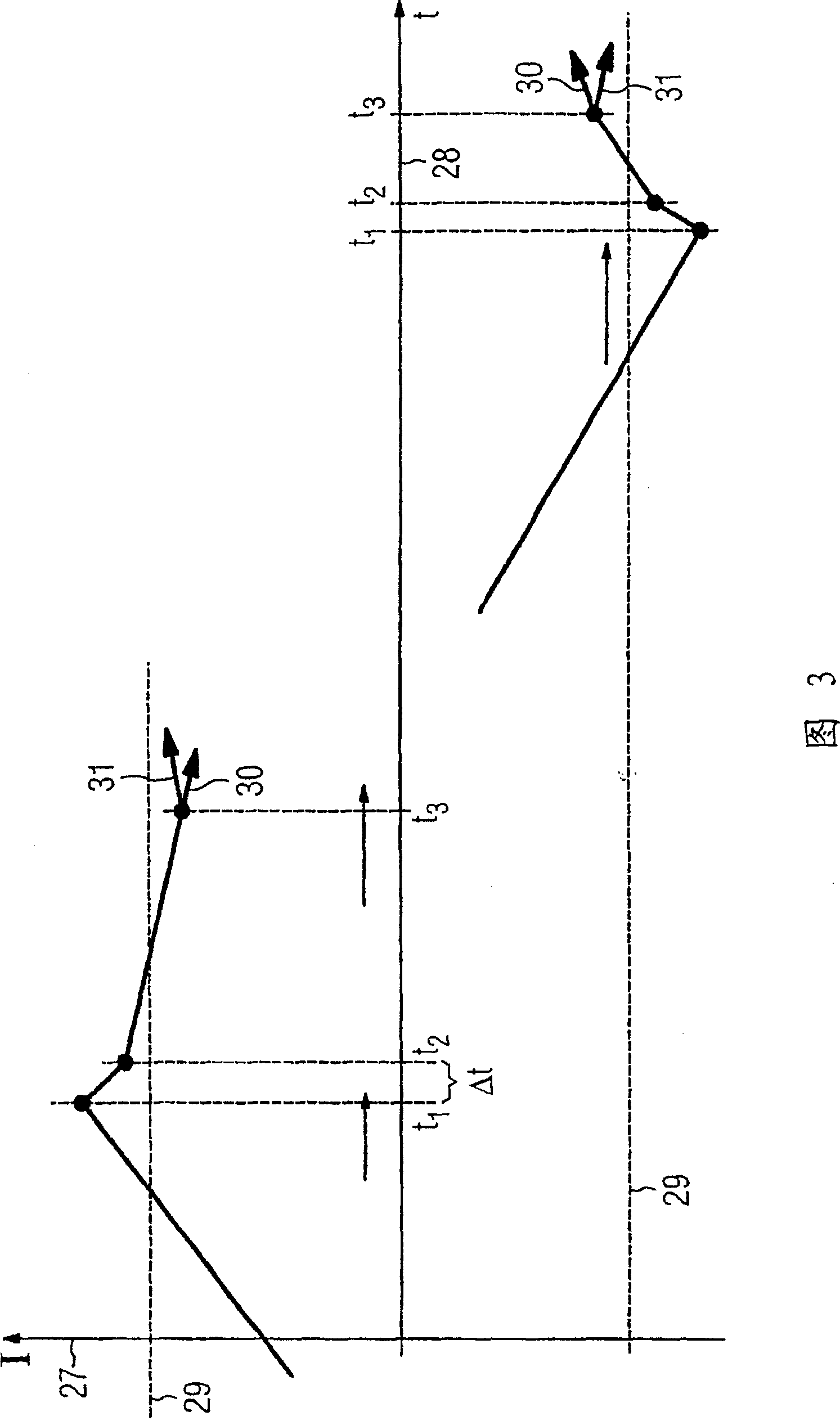Method for controlling an converter that is connected to a direct-current source
A technology of DC voltage source and converter, applied in the direction of converting AC power input into AC power output, output power conversion device, electrical components, etc.
- Summary
- Abstract
- Description
- Claims
- Application Information
AI Technical Summary
Problems solved by technology
Method used
Image
Examples
Embodiment Construction
[0026] FIG. 1 shows a DC grid coupling 1 for supplying an isolated grid 2 via a supply grid 3 . The power supply grid 3 is connected to the high voltage DC bridge 1 through a transformer 4 and the isolated grid 2 is connected to the high voltage DC bridge 1 through a transformer 5 , wherein the switches 6 and 7 are configured to disconnect the high voltage DC bridge 1 from the power supply grid 3 and the isolated grid 2 respectively.
[0027] The DC grid coupling 1 has two converters with self-guiding power semiconductor switches 10 in the form of a six-pulse bridge circuit (6-puls-Brueckenschaltung). A freewheeling diode is arranged in the parallel connection of each power semiconductor switch 10 . The converters 8 and 9 are connected to each other via a DC intermediate circuit 12 which is connected to each other forming a positive DC terminal marked with a "+" sign and a negative DC terminal marked with a "-" sign. An energy store in the form of a capacitor 13 is connected ...
PUM
 Login to View More
Login to View More Abstract
Description
Claims
Application Information
 Login to View More
Login to View More - R&D
- Intellectual Property
- Life Sciences
- Materials
- Tech Scout
- Unparalleled Data Quality
- Higher Quality Content
- 60% Fewer Hallucinations
Browse by: Latest US Patents, China's latest patents, Technical Efficacy Thesaurus, Application Domain, Technology Topic, Popular Technical Reports.
© 2025 PatSnap. All rights reserved.Legal|Privacy policy|Modern Slavery Act Transparency Statement|Sitemap|About US| Contact US: help@patsnap.com



